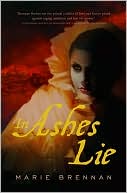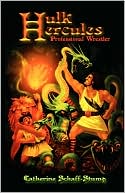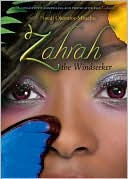Most writers, both commercial and fanfic, have heard some version of the Marion Zimmer Bradley “cautionary tale” regarding fanfiction. In one version, Bradley was a generous, nurturing author who encouraged fanfiction until a greedy fanfic author tried to sue her, torpedoing a book in the process. In another, Bradley had was preying on helpless fanfic authors, using their ideas to perpetuate her publishing empire.
If we’re going to toss this story around every time we talk about fanfiction, it would be nice to have a few facts to go with the fourth-hand accounts, guesswork, and rumors. Michael Thomas and opusculus have both posted about the MZB incident lately, and provided inspiration and starting points for my own write-up. But I wanted to dig deeper, and to avoid the wiki-style sources which in my opinion aren’t as reliable for this sort of thing.
To put my own biases out there, one of my first sales was to Marion Zimmer Bradley’s Fantasy Magazine. I later sold a story to Sword & Sorceress XXI. In addition, I’m published by DAW, which also published Bradley’s work. I’ll leave it to you to read and decide whether this influences my research and write-up.
First hand statements are in red. I’ve included links wherever possible.
The Background:
Bradley allowed and even encouraged fanfiction in the beginning. From Bradley’s 1980 introduction to The Keeper’s Price, the first Darkover anthology (page 14): “[I]n a very real sense, I regard myself not as the “inventor” of Darkover, but its discoverer. If others wish to play in my fantasy world, who am I to slam its gates and in churlish voice demand that they build their own? … Why should I deny myself the pleasure of seeing these young writers learning to do their thing by, for a little while, doing my thing with me?”
Bradley even edited the fanzine Starstone with her husband Walter Breen. (Though to me, this blurs the definitions a little. Is it really fanfic if the creator is the one editing the magazine? What about something like the Star Wars anthologies Kevin J. Anderson edited? Some would say no, because these are licensed works, explicitly permitted by the copyright holder. Others would say it’s still fanfiction. Me, I’m gonna save that argument for another day.)
Years later, a fan named Jean Lamb published a short novel called “Masks” in the fanzine Moon Phases. (Possibly issue #8 in 1986.) Lamb confirms this in a newsgroup posting from 3/19/2001. And here’s where things start to get messy.
The Conflict:
In a letter Bradley allegedly wrote to Writers Digest in March of 1993, she explains, “one of the fans [Lamb] wrote a story, using my world and my characters, that overlapped the setting I was using for my next Darkover novel. Since she had sent me a copy of her fanzine, and I had read it, my publisher will not publish my novel set during that time period, and I am now out several years’ work, as well as the cost of inconvenience of having a lawyer deal with this matter.”
I’ve heard claims that DAW killed the project. I’ve also spoken to Betsy Wollheim at DAW, who states that this was Bradley’s decision, not DAW’s.
Lamb’s version of events is different: “I received a letter offering me a sum and a dedication for all rights to the text. I attempted at that point to _very politely_ negotiate a better deal. I was told that I had better take what I was offered, that much better authors than I had not been paid as much (we’re talking a few hundred dollars here) and had gotten the same sort of ‘credit’ (this was in the summer of 1992).”
Finally, here is Mercedes Lackey’s version. Lackey worked closely with Bradley, and for that reason I count her as a valid primary source. “Marion had begun to write a Darkover book about Regis Hastur. She liked the ‘take’ a particular fan author had on the situations and asked to use that spin on things for her book in return for the usual acknowlegement in the front of the book. She had done this before with other fan authors.”
Bradley had indeed borrowed from fans and other writers before. From Elizabeth Waters: “Back in 1977 I wrote a Darkover story about Hilary Castamir. One of my friends knew MZB and passed it on to her, and she rewrote it into ‘The Keeper’s Price.’ Eventually it became the title story of the first Darkover anthology.” The story is listed in the Table of Contents as a collaboration between Bradley and Waters.
The Facts:
As far as I can tell, the following is not disputed.
- Bradley originally encouraged fanfiction.
- Bradley read Jean Lamb’s story “Masks” in Moon Phases.
- Bradley contacted Lamb, offering payment and a dedication in exchange for rights to use the ideas from “Masks” in the Darkover novel “Contraband.”
- Bradley and Lamb were unable to reach an agreement, and “Contraband” was cancelled.
- Bradley changed her policy on fanfiction, stating that she would no longer allow it.
The Unknown:
I’ve read various accounts and speculations, but have been unable to find definitive answers to the following questions.
- Who was the first to hire a lawyer, Lamb or Bradley?
- How much time and work was actually lost on Bradley’s part?
- How much was Bradley planning to use from Lamb’s work?
- What exactly forced the cancellation of “Contraband”?
That last question bothers me. Several statements suggest the book was already being written. If Bradley and Lamb couldn’t come to an agreement, that’s one thing, but I don’t see how that could ruin the entire book. If you don’t have rights to use someone else’s story, then you continue to write your own.
One possibility comes from the editor of Moon Phases, Nina Boal, who wrote, “Marion did offer Jean a special dedication and also $500. Jean refused this, saying that she wanted a byline for the novel. Jean also became convinced (erroneously) that Marion intended to plagerize [sic] from her fan-written work about Danvan Hastur.”
Whether this was actually the case or just a fear on Bradley’s part, I can understand where the potential for legal complications and accusations of plagiarism could be enough to scuttle the project. However, this is speculative on my part.
My Conclusion:
The MZB incident has been used for years as a caution to authors against allowing fanfiction. Looking at what facts I could find, I don’t believe this is valid.
I’m not saying authors should or should not permit fanfiction, but in this case, I believe the real problem arose not from the fact that Bradley allowed Darkover fanfiction, but from two other, very specific issues:
- Bradley was an active participant in Darkover fanfiction, editing a fanzine and reading unlicensed, fan-written works.
- Bradley tried to buy the rights to use a fan’s story.
You can argue whether Bradley’s offer was unfair or Lamb’s response was unreasonable. Without knowing the specifics, I couldn’t say one way or another. (Knowing human nature, my guess is there’s probably blame enough for both sides, if you’re worried about that.)
The lesson I take from all this is to avoid potentially putting myself in Bradley’s position, and that means not reading fanfiction of my work. Sure, most fanfic authors I’ve met and spoken to have been wonderful people … but it only takes one. So if someone likes my work enough to write fanfiction, I find that flattering. But I don’t want to know about it.
















